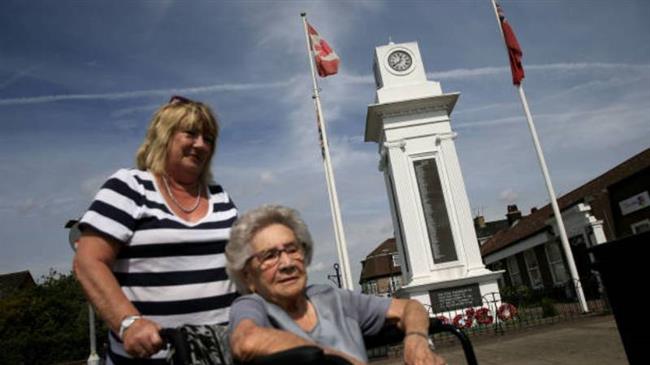UK reports lowest improvement in life expectancy in decades
People in the United Kingdom have lower life expectancy than ever before when data about the health status indicator was collected, a new study by the Office for National Statistics (ONS) has shown.
The ONS report published on Wednesday said life expectancy had not improved between 2015 and 2017 across the UK, with England the least affected among the four nations as it saw its rate unchanged compared to the previous two-year period.
Sophie Sanders, ONS statistician for the Center of Ageing and Demography, said there were several reasons for the stalled life expectancy in the UK, including increased number of deaths that could be linked to issues like the seasonal flu.
“2015 to 2017 saw the lowest improvements in life expectancy since the start of our series in 1980 to 1982,” said Sanders, adding that males and females in Scotland and Wales, as well as males in Northern Ireland, saw a 0.1-year decline in life expectancy at birth.
The situation was even worse for the 65-year-old males in Northern Ireland, as the indicator showed a decline of 0.1 year, more than one month, for the past three years.
According to the ONS data, roughly one in five newborn males and one in three females across the UK could expect to live to their 90th birthday. The average life expectancy for the 65-year-old in Britain was for the men to live another 18.6 years and for the women to go on for an average of 20.9 further years.
Britain has been among the worst in terms of life expectancy when it is compared to other affluent countries in the developed world. It has had a slow pace of life expectancy improvement since 2011 with experts warning that political factors, including government cuts to social care could be to blame.
Iranian diaspora in EU, UK deplore ban on national airline
VIDEO | Press TV's News Headlines
Israel’s military struggling with shortage of troops: Report
Iran calls for more efforts to establish peace in Gaza, Lebanon
Israel targets journalists in southern Lebanon to mask atrocities
Trump vs Harris: A choice between two deranged war hawks who cheer genocide in Gaza
Over 1,800 Palestinians killed in Israel’s month-long attacks in northern Gaza
UN official urges Egypt to seize Israel-bound arms ship MV Kathrin










 This makes it easy to access the Press TV website
This makes it easy to access the Press TV website